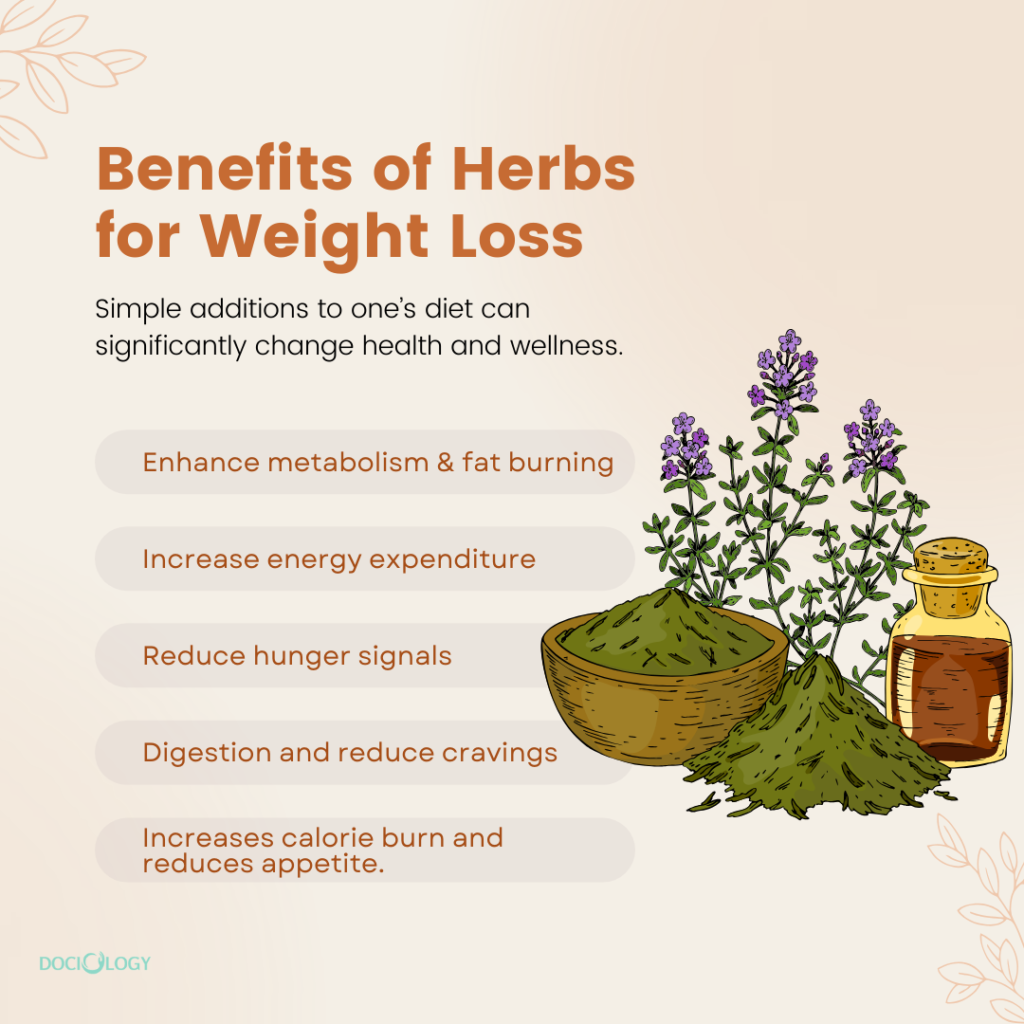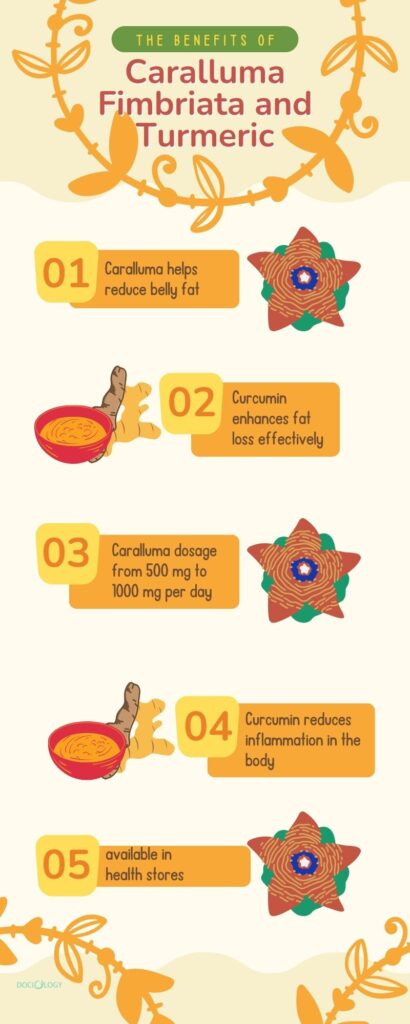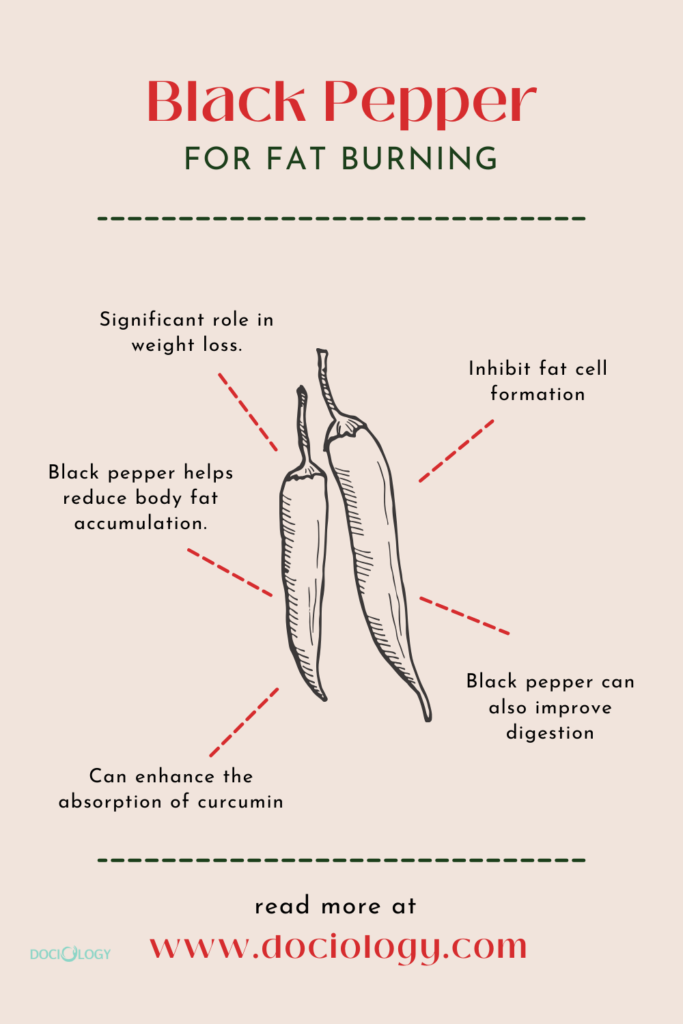Herbs for weight loss have gained popularity for their natural properties. Many seek effective weight reduction remedies to shed pounds without relying solely on diets or exercise. Certain herbs can support metabolism, enhance fat burning, and curb appetite. Incorporating these herbs into daily routines may provide additional benefits beyond weight loss.
This post explores various herbs known for their weight-loss potential. Each herb offers unique advantages and can be easily added to meals or consumed as teas. Understanding the role of these herbs can empower individuals in their weight management journey. Discover how simple additions to one’s diet can significantly change health and wellness.
Key Takeaways
-
Incorporate herbs like fenugreek and ginger into your meals to help boost metabolism and curb cravings effectively.
-
Experiment with oregano and ginseng, as they can enhance energy levels while supporting weight loss efforts.
-
Consider adding caralluma fimbriata and turmeric, weight loss supplements, to your diet for their potential appetite-suppressing properties.
-
Use black pepper and gymnema sylvestre to manage sugar cravings and improve digestion during your weight loss journey.
-
Try including cinnamon and green coffee bean extract in your routine, as they may help regulate blood sugar levels and promote fat burning.
-
Always consult a healthcare professional before using herbs for weight loss to ensure safe and effective use.
Benefits of Herbs for Weight Loss
How Herbs Aid Weight Loss
Certain herbs can enhance metabolism and fat burning. For instance, green tea extract contains catechins. These compounds help increase energy expenditure. A study published in the American Journal of Clinical Nutrition found that green tea can boost metabolic rates by 4-5%.
Herbs also play a role in appetite suppression. Some herbs, like hoodia gordonii, an appetite suppressant, have been shown to reduce hunger signals. This can help individuals consume fewer calories throughout the day. Lower calorie intake supports weight management effectively.
Natural compounds in herbs can alter fat synthesis. For example, curcumin from turmeric reduces fat storage. It does this by influencing specific enzymes in the body. Certain herbs improve gut health. A healthy gut microbiome aids in digestion and nutrient absorption, further assisting in weight loss.

Common Herbs and Their Effects
Popular herbs known for their weight-loss properties include peppermint, ginger, and cayenne pepper. Each herb offers unique benefits for weight management.
Peppermint can help with digestion and reduce cravings. Ginger boosts metabolism and aids in burning fat. Cayenne pepper contains capsaicin, which increases calorie burn and reduces appetite.
Scientific studies compare the effectiveness of these herbs. Research indicates that cayenne pepper may enhance metabolic rate more than other herbs. In one study, participants who consumed cayenne pepper burned more calories than those who did not.
Incorporating these herbs into daily diets is simple. Peppermint tea can be enjoyed after meals. Ginger can be added to smoothies or used in cooking. Cayenne pepper works well in soups or sprinkled on salads.
Combining Herbs with Lifestyle
Integrating herbs into a balanced diet yields optimal results for weight loss. A diet rich in fruits, vegetables, lean proteins, whole grains, and herbs pairs well with herbal supplements. This combination ensures proper nutrition while promoting healthy weight loss.
Pairing herbs with regular exercise enhances weight loss efforts significantly. Exercise increases calorie burn and improves overall fitness levels. Engaging in activities like walking, running, or strength training complements the effects of herbs.
Maintaining a healthy lifestyle alongside herb supplementation is crucial. Proper hydration, adequate sleep, and stress management support weight loss goals effectively. Tracking progress through journals or apps helps evaluate the effectiveness of combined approaches.
Fenugreek and Ginger
Fenugreek Benefits and Usage
Fenugreek helps increase feelings of fullness. This can lead to reduced hunger, lower calorie intake, and various weight loss effects. Studies show that fenugreek seeds contain soluble fiber. This fiber expands in the stomach, making a person feel satisfied longer.
Incorporating fenugreek into meals is easy. It can be added to soups, stews, or smoothies. Ground fenugreek powder works well in spice mixes. Some people also take fenugreek supplements for convenience. These supplements often come in capsule form.
The recommended dosage varies. For effective weight loss, 500 mg to 1,000 mg per day is common. It’s best to start with a lower dose and gradually increase it. Cooking with fenugreek leaves is another option. They add flavor to dishes while supporting weight management.

Ginger Properties and Effects
Ginger has many metabolic benefits for weight loss. It can boost metabolism, helping the body burn calories more efficiently. Research indicates that ginger may also help regulate blood sugar levels. This regulation can prevent cravings and support weight control.
Ginger decreases fat absorption in the body. This means less fat is stored after eating meals rich in fat. By consuming ginger regularly, individuals may see better results in their weight loss journey.
There are several ways to enjoy ginger. Ginger tea is popular for its health benefits. Simply steep fresh ginger slices in hot water for a soothing drink. Ginger powder can be added to smoothies or oatmeal as well. Supplements are another option for those who prefer concentrated doses.
Ginger also has potential anti-inflammatory effects. Chronic inflammation can hinder weight loss efforts. By reducing inflammation, ginger supports overall health and wellness.
Oregano and Ginseng
Oregano’s Role in Weight Control
Oregano contains a compound called carvacrol. This active ingredient, known for its potential as an appetite suppressant and diet herb, is recognized for aiding weight loss. Studies have shown that carvacrol may influence fat synthesis in the body. It can help reduce the formation of fat cells.
Animal studies indicate that oregano may alter how the body processes fats. In particular, research involving mice has suggested that oregano can decrease fat accumulation. This effect could be beneficial for those looking to manage their weight loss.
Oregano is not just a spice; it enhances meals while offering health benefits and is an herb. It can be added to salads, sauces, or soups for flavor. Using fresh or dried herb like oregano in cooking can improve both taste and nutrition. Beyond weight loss, oregano has antibacterial properties. It may also support digestion and boost the immune system.

Ginseng for Metabolism Boost
Korean ginseng is another herb linked to weight management. Research indicates that it can lead to reductions in body weight and loss. In one study, rats showed decreased body weight after ginseng consumption. This suggests that ginseng might play a role in regulating metabolism.
Ginseng also affects gut microbiota, which is important for digestion and overall health. A healthy gut can contribute to effective weight management. The relationship between ginseng and gut bacteria shows promise as a natural approach to losing weight.
There are several ways to consume ginseng. It is available as tea, capsules, or extracts. Each form provides flexibility based on personal preference. Many find that drinking ginseng tea boosts energy levels during weight loss efforts. This energy increase can enhance physical activity and support a healthier lifestyle.
Caralluma Fimbriata and Turmeric
Caralluma Fimbriata for Appetite
Caralluma Fimbriata is a cactus that can help reduce belly fat. Studies show it can lead to weight loss by decreasing appetite. This herb works by affecting the body’s hunger signals. It may inhibit the enzyme that breaks down fat, leading to less fat storage.
Reduced appetite means less food intake. People using Caralluma often report feeling full after smaller meals. This helps them stick to their diet plans. The typical dosage ranges from 500 mg to 1000 mg per day. Supplements are widely available in health stores.
Traditional use of Caralluma dates back centuries. In India, locals consumed it during long hunts to curb hunger. This historical context highlights its effectiveness as an appetite suppressant. Many cultures have embraced this herb for its health benefits.

Turmeric’s Impact on Fat Loss
Curcumin is the active compound in turmeric. Research indicates curcumin enhances fat loss effectively. It helps regulate metabolism and reduces inflammation in the body. This combination promotes weight loss, especially around the belly area.
Turmeric can decrease belly fat through several mechanisms. It improves insulin sensitivity, which aids in fat breakdown. Studies suggest that daily consumption can lead to visible results over time.
Incorporating turmeric into meals is simple. Adding it to soups, stews, or smoothies boosts flavor and nutrition. Turmeric supplements are also an option for those seeking concentrated doses.
Besides weight loss, turmeric offers other health benefits. It supports heart health and may improve brain function. Regular consumption can enhance overall well-being.
Black Pepper and Gymnema Sylvestre
Black Pepper for Fat Burning
Piperine is the active compound in black pepper. It plays a significant role in weight loss. Studies show that piperine can inhibit fat cell formation. This process is known as adipogenesis. By blocking this formation, black pepper helps reduce body fat accumulation.
Using black pepper in cooking can enhance its benefits. Adding it to meals boosts metabolism. It can also improve digestion. For instance, sprinkle black pepper on salads or soups. Incorporating it into stir-fries adds flavor and health benefits.
Combining black pepper with other herbs may increase its effects. For example, mixing it with turmeric can enhance the absorption of curcumin, another beneficial compound. This synergy makes both herbs more effective for weight loss.

Gymnema for Appetite Control
Gymnema Sylvestre is known for its appetite-suppressing qualities. Research indicates that it can significantly reduce overall hunger. This effect helps in managing food intake effectively. Gymnema works by blocking sugar receptors on the tongue. This action reduces cravings for sweet foods.
The potential impact on sugar cravings is notable. Many people struggle with sugar addiction. Gymnema may help break this cycle by lowering desire for sugary snacks. This reduction leads to lower calorie consumption overall.
Gymnema comes in various forms for easy use. Drinking Gymnema tea is common among users seeking weight loss. Capsules are also available for those who prefer convenience. Both methods deliver the herb’s beneficial properties effectively.
In addition to appetite control, Gymnema offers other health advantages. It may aid in blood sugar regulation, making it beneficial for diabetics. By stabilizing blood sugar levels, Gymnema supports overall metabolic health.
Cinnamon and Green Coffee Bean
Cinnamon’s Effect on Sugar Levels
Cinnamon can mimic insulin effects in the body. This spice helps cells take up sugar from the bloodstream. By doing this, it lowers blood sugar levels. Studies show that cinnamon may enhance insulin sensitivity. This means the body uses insulin more effectively.
Transporting sugar efficiently is crucial for weight management. When sugar enters cells, it doesn’t remain in the bloodstream. This process can prevent fat storage and promote energy use. For those looking to lose weight, incorporating cinnamon into meals is beneficial.
Adding cinnamon to daily meals is easy. Sprinkle it on oatmeal or yogurt for breakfast. Mix it into smoothies or coffee for a flavorful boost. Using cinnamon in baking, like muffins or pancakes, adds taste without extra calories. Beyond weight loss, cinnamon offers health benefits. It has anti-inflammatory properties and may improve heart health. Regular consumption of cinnamon can support overall well-being.
Benefits of Green Coffee Bean
Green coffee bean extract may contribute to weight loss efforts. It contains chlorogenic acid, which can reduce the absorption of carbohydrates. This effect helps manage blood sugar levels, aids in fat burning, and has various weight loss effects. Research indicates that green coffee extract may lead to reduced body mass index (BMI) and weight over time.
Specifically, green coffee beans may help decrease belly fat. Studies have shown that participants taking green coffee extract lost more weight than those who did not. The reduction of visceral fat around the abdomen, significant for health risks associated with obesity, is crucial for weight loss.
Green coffee beans come in various forms for consumption. Capsules are convenient for those who prefer a quick option. Brewed green coffee is another choice, offering a unique flavor profile. Drinking brewed green coffee provides an enjoyable way to experience its benefits. Besides aiding weight loss, green coffee beans are rich in antioxidants. These compounds help fight free radicals and support overall health.
Cumin and Cardamom
Cumin for Metabolism Boosting
Cumin is a spice that may help with weight loss. Studies suggest that cumin consumption can lead to fat reduction. In one study, participants who took cumin saw a decrease in body fat compared to those who did not. This spice may enhance metabolic rates, which is crucial for burning calories.
The active compounds in cumin can stimulate the digestive system. This stimulation may increase the body’s ability to process food efficiently. A faster metabolism means more calories burned throughout the day.
Culinary uses for cumin are diverse. It works well in curries, soups, and stews. Adding cumin to meals can enhance flavor while supporting weight management. People can also sprinkle it on salads or mix it into yogurt for a healthy snack.
Cumin offers additional health benefits too. It aids digestion by promoting better gut health. This spice contains antioxidants that help protect cells from damage. Overall, incorporating cumin into a diet can be beneficial for both weight loss and overall health.
Cardamom’s Role in Digestion
Cardamom is another spice linked to improved digestion. This aromatic spice can help reduce bloating and gas. Better digestion may support weight loss efforts as well. Some studies indicate cardamom might aid in reducing body and belly fat over time.
Research shows that cardamom can influence fat metabolism. In one study, participants consuming cardamom experienced a reduction in waist circumference. This suggests that cardamom may play a role in targeting stubborn belly fat.
People can easily incorporate cardamom into their diets. It adds flavor to teas, smoothies, and baked goods. Sprinkling ground cardamom on oatmeal or yogurt enhances taste and nutrition. Using whole pods in cooking can also provide a unique flavor experience.
Cardamom has additional health benefits worth noting. It possesses antioxidant properties that combat free radicals. These antioxidants contribute to overall wellness by protecting the body from oxidative stress.
Safe Use of Herbs
Dosage Recommendations
Herbal remedies can offer support for weight loss when used correctly. Each herb has its own recommended dosage. For example, green tea extract is often taken in doses of 250 to 500 mg daily. This amount can help increase metabolism without causing harm.
Exceeding suggested amounts can lead to negative effects. Taking too much of any herbal supplement may cause side effects. Therefore, sticking to recommended dosages is crucial for safety.
Consulting a healthcare provider can help tailor the dosage to individual needs. They can provide personalized advice based on health history and goals. Consistency in taking herbs also plays a role in their effectiveness. Regular use allows the body to adapt and respond better to the herbal support.
Potential Side Effects
While herbs can aid weight loss, they may also have side effects. Common side effects include digestive issues, headaches, and allergic reactions. For instance, some people may experience stomach upset from taking too much ginger.
Monitoring individual reactions to herbs is important. Everyone’s body responds differently to herbal therapies. Keeping track of any changes or discomfort can help identify problematic herbs.
If adverse effects occur, it is necessary to stop using the herb immediately. Discontinuing use prevents further complications and promotes safety. Researching each herb before starting supplementation is also vital. Understanding potential side effects helps individuals make informed choices about their weight loss journey.
When to Consult Experts
Before starting any new herb regimen, consulting a healthcare professional is recommended. This step is particularly important for those with pre-existing health conditions. Certain herbs may interact negatively with medications or worsen existing issues.
Discussing the combination of herbs with current medications is essential. Healthcare providers can identify possible interactions that could affect health. Personalized guidance ensures that individuals choose safe and effective weight loss strategies.
Involving professionals in dietary changes provides additional benefits. They can recommend specific herbal remedies based on individual health needs and goals. This tailored approach increases the likelihood of successful weight loss while minimizing risks.
Closing Thoughts
The exploration of various herbs for weight loss highlights their potential benefits and effectiveness. Each herb discussed, from fenugreek to cinnamon, offers unique properties that can aid in weight management. Understanding these natural solutions allows individuals to make informed choices regarding their health and wellness.
Incorporating these herbs into a balanced diet may enhance weight loss efforts. However, it is essential to consult healthcare professionals before starting any herbal regimen. This ensures safety and compatibility with individual health needs. Readers are encouraged to delve deeper into the world of herbal remedies, including metabolic herbs, and consider integrating them into their lifestyle for potential weight loss benefits.
Frequently Asked Questions
What are the benefits of using herbs, a herbal diet remedy, for weight loss?
Herbs can enhance metabolism, suppress appetite, and improve digestion. They often contain antioxidants and anti-inflammatory properties that support overall health, making them a beneficial addition to a weight loss regimen.
How does fenugreek aid in weight loss?
Fenugreek seeds contain soluble fiber, which helps control appetite and promotes feelings of fullness. This can lead to reduced calorie intake, supporting weight loss efforts.
Can ginger help with weight management?
Ginger has thermogenic properties that may boost metabolism. It also aids digestion and can reduce inflammation, contributing to effective weight management when combined with a balanced diet.
What role does cinnamon play in weight loss?
Cinnamon helps regulate blood sugar levels, which can curb cravings and reduce hunger. Its ability to improve insulin sensitivity makes it a valuable herb for those seeking to lose weight.
Is black pepper effective for losing weight?
Black pepper contains piperine, which may enhance metabolic performance and fat breakdown. Its inclusion in meals can potentially aid in weight management by improving nutrient absorption.
Are there any risks associated with using herbal diet remedies, dietary supplements, spices, or counter diet products for weight loss?
While many herbs are safe, some may interact with medications or cause side effects. It’s crucial to consult a healthcare professional before starting any herbal supplement for weight loss.
How should herbs be used safely for weight loss?
Herbs should be consumed in moderation as part of a balanced diet. Individuals should follow recommended dosages and consider consulting a healthcare provider to ensure safety and effectiveness.



